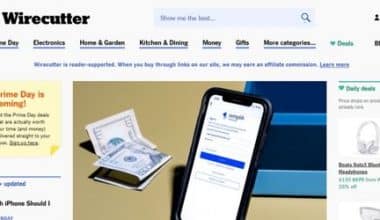Neglecting your social media posts allows competitors to steal your engagement! It is the truth. You must post social media content that encourages interaction. Because your competition will provide what your audience desires if you do not. In this guide, you’ll learn all about social media content, including the 4 common types, and how to be a successful creator that can plan content and also engage in marketing for the betterment of the brand. Let’s get started.
We want to make sure we’ve covered all of our bases first. What exactly do we mean by social media content? Social media content includes anything you share on social media, such as a text update, a photo, a graphic, a video, a link, and so on. Yet the point we want to make today is that, while almost anything can be social media content, that doesn’t mean it should be.
The content your brand shares on social media should always reflect your brand’s voice and values while also assisting you in reaching your bottom line. Isn’t that the whole goal of social media content marketing? You want to create a content calendar that engages your audience while also assisting your company in increasing brand visibility, engagement, and, eventually, conversions. It is the overarching purpose of every social media position.
We’ll go over the top ten sorts of social media posts that your company should think about generating and testing to see how they perform with your target audience. Maintain your social media reporting to determine which types of content your audience prefers.
4 Types of Social Media Content Formats
Before you go directly to the types of content for social media, you should learn the 4 content formats. So, there are 4 types of social media content formats for social media and they include:
#1. Image
You can utilize images to display any information, including eye-catching photos, graphics, screenshots, pictures, and anything else that may be of interest to your followers.
#2. Video
Because video provides a more raw view of the world, it is a more popular content medium than writing. The video blends moving visuals and sounds, making it easier to pique someone’s interest.
#3. Text
Text is typically the most challenging social media format to consume. Humans are sluggish readers. But, if your messages are simple to grasp, your audience will read them all the way through.
#4. Audio
Music is the most popular audio format, and it is supported by iTunes and Spotify. You can also utilize audio to broadcast interviews and talking heads or to create a podcast. Several publications, such as The New Yorker, use audio format for their stories.
Types of Social Media Content to Produce
You can start using the following forms of material to engage your followers and expand your following (and your business):
#1. Branded Graphics
Because you may generate branded graphics for almost any reason, this is a rather broad content type, but it should still be an important element of your content strategy.
Branded graphics can be used on a variety of social media platforms, but they are especially effective on visual platforms such as Instagram and Pinterest. These graphics simply use your brand fonts and colors to provide a tip, promotion, blog article, lead magnet, and so on. Consider the following example from the social media scheduling application Planoly. This is an excellent example of social media content marketing.
#2. User-generated content (UGC)
UGC is a good type of social media content created by others that you repost (while giving credit to the original creator). It may be reposting someone else’s content and tagging them in the post, for example. It’s as simple as a retweet on Twitter. UGC is a simple and effective technique to enhance engagement and reach.
When new and existing followers see these posts, they are compelled to connect with you. Why? They, like you, are undoubtedly looking to grow their following! UGC demonstrates to your followers that you care about and stay in touch with your audience. Upload UGC to show your audience that you care and to keep your material fresh.
#3. Videos
Video is a good type of social media content and an excellent sort of material to incorporate into your digital marketing strategy. There are numerous types of social media content videos that your brand may and should create to reach your target audience, whether you’re marketing to teens, Millennials, Gen X, or anybody else.
You also don’t need a large marketing budget to develop video content. With a smartphone, your small business may simply create high-quality marketing videos.
These are some examples of social media movies you can make:
- Listicles: Provide your top three tips or top five features in a few video slides.
- Video Testimonials: Make an entertaining and shareable video out of your greatest reviews.
- Promo Videos: To market your product or service, create a short 30-60 second video.
- Social Media Ads: Place video advertisements on networks such as Facebook, Twitter, and Instagram.
- Explainer Videos: Demonstrate to potential customers how your product or service works.
#4. GIFs
GIF marketing is not a new concept, but it can still be utilized in your social media content. Making your own customized GIFs is a terrific way to add some excitement to your social media feeds.
A GIF can represent almost any form of the social media material. It may be a statement written as an animation, or a tip post with multiple portions displayed one after the other. For a more intriguing approach, comparisons can be converted into GIFs.
#5. Infographics
Infographics mix aesthetic appeal with knowledge strength. Individuals are more likely to interact with an infographic than they are with plain text. Why? Posts with no images are ANNOYING! But isn’t it difficult to create an infographic? NOPE!
Canva and other similar tools provide templates that you can easily fill in with the information you wish to convey. You can choose to create your social media content based on eye-catching, informative infographics by using Canva or any other graphic creator and share them on your social media platforms.
#6. Ebooks
Ebooks are excellent lead magnets, but you must advertise them in order to expand their reach and produce more leads. Here is where your social media material comes into play.
Consider making visuals or GIFs to promote your ebook opt-ins in order to increase the size of your email list for future email marketing campaigns.
#7. Webinars
Turn your infographic into a webinar to take it to the next level! Webinars are VERY successful for business growth. 73% of B2B marketers believe webinars are the best approach to generate high-quality leads.
Why are webinars such effective forms of content? They bring together all of the best aspects of digital marketing:
- Webinars use video to convey information.
- They frequently invite audience participation.
- Throughout the webinar, speakers can make CTAs.
For a limited time after the live recording, you can also share your webinar. Upload the webinar recording to YouTube, Facebook, or Wistia. People should be required to submit their email addresses in order to view the link. One of the most effective strategies of lead generation is the collection of email addresses. The optimal webinar length is 30-40 minutes.
#8. Presentations
A presentation is a unique social media content idea. You can post them to SlideShare or save the slides as separate images to make a social media carousel.
Presentations designed for social media are unlikely to resemble your typical presentation. Because you won’t have a speaker to accompany your presentations, you’ll need to include some text-only slides to help your viewer understand more about your subject. This type of material is ideal for disseminating industry news, tutorials or how-to articles, extensive research, or reused blog content.
What is a Social Media Content Plan?
Creating good social media content requires a plan. A social media content plan is an important aspect of your overall marketing strategy because it allows you to successfully plan the sorts of material you post on various social media platforms based on your target demographic.
You should also design your captions or post copy depending on the social media networks you utilize. Social media content plan is crucial since they allow you to view all of the different sorts of material you’re sharing throughout the month.
How to Create a Social Media Content Plan
#1. Learn about your target audience
Analyzing your target audience might help you determine which types of postings will perform best. It can also assist you in deciding which social media channels to use. Not every business will be successful on every platform. B2B companies, for example, do well on LinkedIn and Facebook, whilst e-Commerce companies do well on Instagram and TikTok.
#2. Set goals
All of your business and marketing initiatives require goals in order to be measured. Among the objectives, you might set for your social media strategy are the following:
- Brand recognition
- Website Traffic
- Lead generation and sales
- Involvement
#3. Do a competitive analysis
If your competitors are already using social media well, look at their profiles to determine what types of material are working for them. After all, you have the same target audience, so the types of postings that work for them will most likely work for you. Make your posts, however, distinct. Never steal or imitate a competitor’s designs.
#4. Gather content
Your brand has probably already created a few pieces of content for marketing purposes. Take a look over all of your content and see what you can repurpose for social media. Consider the types of blogs you can post on social media to enhance web traffic and brand exposure, for example, if your website has a blog. You can reuse many forms of content by creating new content from them. Your blog post, for example, can be quickly converted into an infographic or video.
#5. Develop a content creation plan
You’re unlikely to have enough content to repurpose for daily postings, so you’ll need a content development strategy that allows you to devote quality time to developing social media content. Beautiful posts do not require you to be a great designer. Instead, you may utilize a content creation tool to create original material without having to hire a designer. Set aside time each month to create material for the following month so that you are always prepared in case you run out.
#6. Create a calendar
Establishing a content calendar can assist you in planning your social media posts ahead of time, saving you time. If you want to publish on social media on a daily basis, consider adopting a social media management tool that allows you to schedule posts on all of your channels from one location. These tools enable you to measure the effectiveness of your postings and assess various areas of your marketing plan in real-time, allowing you to make real-time modifications.
#7. Evaluate content
Don’t forget about your stuff after you’ve posted it. Regularly review your content to identify which types of postings work well and receive the most engagement from your target audience. You may be shocked by your findings, so keep track of your likes, comments, and web traffic to ensure you’re including the most effective sorts of material in your social media content strategy.
What are the 3 Types of Social Media Content?
Educational information, interactive content, and inspirational material are the three forms of social media content that receive the most social shares. These are the categories we typically see in the shape of infographics, Canva quotes from great individuals, and educational content such as webinars and documentaries.
What is Good Social Media Content?
Repurposing user-generated content is the simplest approach to making social media content. User-generated content is beneficial for two reasons: it engages your audience and raises brand exposure. Guest blogs, pictures, videos, online reviews, and even testimonials are examples of such content.
What are the 4 Types of Social Media Content?
Based on ownership, there are four types of social media content: owned, which is content that you have complete control over; earned, which is content posted by others that refers to your products and services, such as reviews; paid, also known as sponsored posts; and dark, which is content that we usually cannot track its original source.
What are the Six Types of Content?
Make sure your toolset includes these six sorts of content if you want to effectively reach your desired audience.
- Blog entries.
- Guest-contributed articles
- Press mentions.
- Email marketing.
- Gated content.
- Video content.
What are Examples of Content?
Blogs, emailers, newsletters, social media posts, case studies, and other forms of content are examples.
What are Types of Content?
- Blog posts.
- Emails.
- Content for social media.
- Guides.
- Ebooks.
- video content.
- Webinars.
- Case studies.
Conclusion
To get the most out of your social media content, you might try any of the above-mentioned social media content categories. Before you begin, though, you should learn about your target audience, what they want, and what their interests are. Just because we demonstrated that various content kinds work does not guarantee that you will achieve similar results. Your audience may have specific wants or need something completely different than what you are delivering.
Therefore get to know your audience, review your analytics, experiment with different content kinds, and develop a social media plan tailored to your individual audience.
Related Articles
- GRAPHICS DESIGN BUSINESS: How to Start in 2023
- UGC CONTENT: meaning, how to start & benefit
- WHAT ARE THE BEST EMAIL MARKETING SERVICES in 2023? (Updated)
- 2023 GETRESPONSE REVIEW- Is It Any Good?
- SOCIAL MEDIA MANAGEMENT TOOLS: The Top Best 2023 Picks
- WHAT IS RDP: Meaning, Uses & What You Should Know






